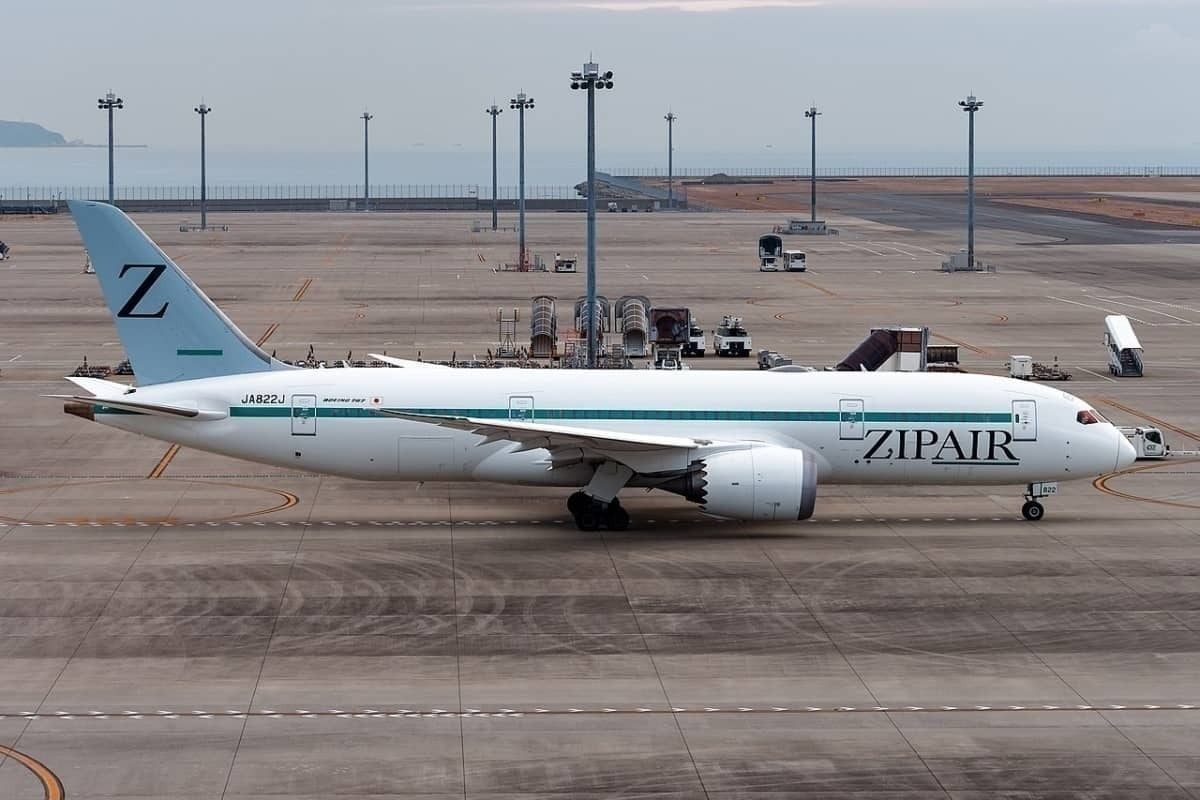Japan's newest low-cost carrier has finally taken to the skies - just not how anyone first imagined it. The airline had its maiden flight yesterday, scooting between Tokyo and Bangkok. But instead of carrying passengers, the flight carried machine parts and chemical products. The cargo-only flight was potentially more hazardous but certainly quieter than a planeload of passengers.
Swapping passengers for freight
Initially, Japan Airlines' low-cost subsidiary was due to fly on May 14. But those plans were scuttled by COVID-19. However, rather than sit idle, the fledgling carrier decided to capitalize on rising demand for cargo flights and swap out passengers for freight.
In a statement seen by Simple Flying, Zipair's President Shingo Nishida said;
"Since the announcement of our business in May 2018, our employees have united to prepare for the launch of medium and long-distance LCC services. Unfortunately, in light of the current situation, we are not able to launch passenger flights to Bangkok. As people around the world find new ways to promote their businesses, we decided to take a step forward by temporarily launching cargo-only flights between Japan and Thailand."
In a slightly unusual move, the cargo flights are keeping to the same schedule as the original passenger flights. Flights will operate four times a week on Wednesday, Thursday, Friday, and Saturday. There will be a late afternoon pushback at Narita for a mid-evening arrival into Bangkok's Suvarnabhumi Airport. Just before midnight on the same day, the aircraft will leave Bangkok and fly through the remainder of the night, landing back into Narita the next morning.
Putting aircraft to work rather than leaving them grounded
The flights will be operated by one of two Boeing 787-8s owner Japan Airlines had sent over earlier this year. Passenger flights have been postponed indefinitely.
"As airlines continue to suspend flights, the need for air cargo services is in demand. As such, Zipair Tokyo announced the plan to launch cargo-only flights, utilizing the carrier’s Boeing 787-8 aircraft between the two countries,†said Zipair in a statement.
While the maiden Zipair flights might lack the usual razzle-dazzle, they are a smart move by the airline. COVID-19 has disrupted established supply chains, and there's strong demand for new cargo flights. Japan's car industry has a lot of components made in Thailand, and there's usually a lot of cargo traffic between the two countries. Additionally, there is a strong demand for time-sensitive Japanese seafood in Thailand.
Budget carrier eyes North American market
Further, these flights help give Zipair's pilots some flying hours. They'll need them because Zipair has ambitions of long-haul flying. The airline has its eye on North America, and there are some exciting sectors on its radar, including the now unserved Tokyo-Las Vegas route.
While Zipair focuses on its targeted leisure market, it can leave the premium traffic heading to North America to its parent Japan Airlines and their oneworld buddy, American Airlines.
In the meantime, Zipair is carrying a different type of payload to what they first expected. Machine parts may not be glamorous, but they still help pay the airline's bills. And in an era where airlines are busy stopping flying, it's refreshing to see one start flying.
Best of luck to Zipair.

